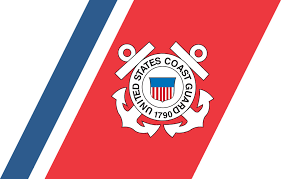- Vessel representatives are required to report sick or deceased crew or passengers within the last 15 days to the CDC under 42 CFR 71.21. Regional CDC quarantine station points of contact can be found at: http://www.cdc.gov/quarantine/QuarantineStationContactListFull.html
- The Coast Guard will review all Notice of Arrivals to determine if a vessel has visited a country impacted by Ebola virus outbreak within its last five ports of call.
- Vessel masters should inform any Coast Guard boarding teams of any ill crew members onboard.
- Local industry stakeholders, in partnership with their Coast Guard Captain of the Port, should review and be familiar with section 5310 Procedures for Vessel Quarantine and Isolation, and Section 5320 Procedures for security segregation of Vessels in their Area Maritime Security Plan.
- Local industry stakeholders, in partnership with their Coast Guard Captain of the Port, should review and be familiar with their Marine Transportation System Recovery Plan.
- Symptoms include fever, headache, joint and muscle aches, sore throat, and weakness, followed by diarrhea, vomiting, and stomach pain. In addition, skin rash, red eyes, and internal and external bleeding may be seen in some patients.
- Travelers could be infected if they come into contact with blood or body fluids from someone who is sick or has died from Ebola, sick wildlife, or meat from an infected animal. Health care providers caring for Ebola patients and family and friends in close contact with an ill person are at highest risk because they may come into contact with blood or body fluids.
- Monitor your health for 21 days if you were in an area with an Ebola outbreak, especially if you were in contact with blood or body fluids, items that have come in contact with blood or body fluids, animals or raw meat, or hospitals where Ebola patients are being treated.
Should by chance a vessel has a possible issue with regarding this Ebola precaution, please notify the Bar Pilots.
Ebola Virus Precautions
Ebola is a viral hemorrhagic fever disease. On September 10, 2019, CDC and the World Health Organization (WHO) were made aware of unofficial reports regarding the unexplained death of a person two days earlier from probable Ebola virus disease (EVD) in Dar es Salaam, United Republic of Tanzania. More information is available atwww.cdc.gov/ebola and information about the situation in Tanzania is available athttps://wwwnc.cdc.gov/travel/destinations/traveler/none/tanzania.
Vessel owners/operators should be alert to the possibility that persons whose travel originated in Tanzania could potentially have been exposed to EVD.
Some key points to remember concerning Ebola:
- Symptoms include fever, headache, joint and muscle aches, sore throat, and weakness, followed by diarrhea, vomiting, and stomach pain. In addition, skin rash, red eyes, and internal and external bleeding may be seen in some patients.
- Travelers could be infected if they come into contact with blood or body fluids from someone who is sick or has died from Ebola, sick wildlife, or meat from an infected animal. Health care providers caring for Ebola patients and family and friends in close contact with an ill person are at highest risk because they may come into contact with blood or body fluids.
- Monitor your health for 21 days if you were in an area with an Ebola outbreak, especially if you were in contact with blood or body fluids, items that have come in contact with blood or body fluids, animals or raw meat, or hospitals where Ebola patients are being treated.Vessel owners/operators and local stakeholders should be aware of the following:
- Vessel representatives are required to report sick or deceased crew or passengers within the last 15 days to theCDC under 42 CFR 71.21. Regional CDC quarantine station points of contact can be found at:http://www.cdc.gov/quarantine/QuarantineStationContactListFull.html
- The Coast Guard will review all Notice of Arrivals to determine if a vessel has visited a country impacted by Ebola virus outbreak within its last five ports of call.
- Vessel masters should inform any Coast Guard boarding teams of any ill crewmembers onboard.
- Local industry stakeholders, in partnership with their Coast Guard Captain of the Port, should review and be familiar with section 5310 Procedures for Vessel Quarantine and Isolation, and Section 5320 Procedures for security segregation of Vessels in their Area Maritime Security Plan.
- Local industry stakeholders, in partnership with their Coast Guard Captain of the Port, should review and be familiar with their Marine Transportation System Recovery Plan.
Questions regarding this should be forwarded to the Coast Guard Office of Emergency Management & Disaster Response, Incident Management and Disaster Response Division (CG-OEM-2) at 202-372-2073 or by email atEbolaQuestions@uscg.mil.
CAPT Kailie J. Benson, U.S. Coast Guard, Office of Emergency Management and Disaster Response (CG-OEM), sends.


